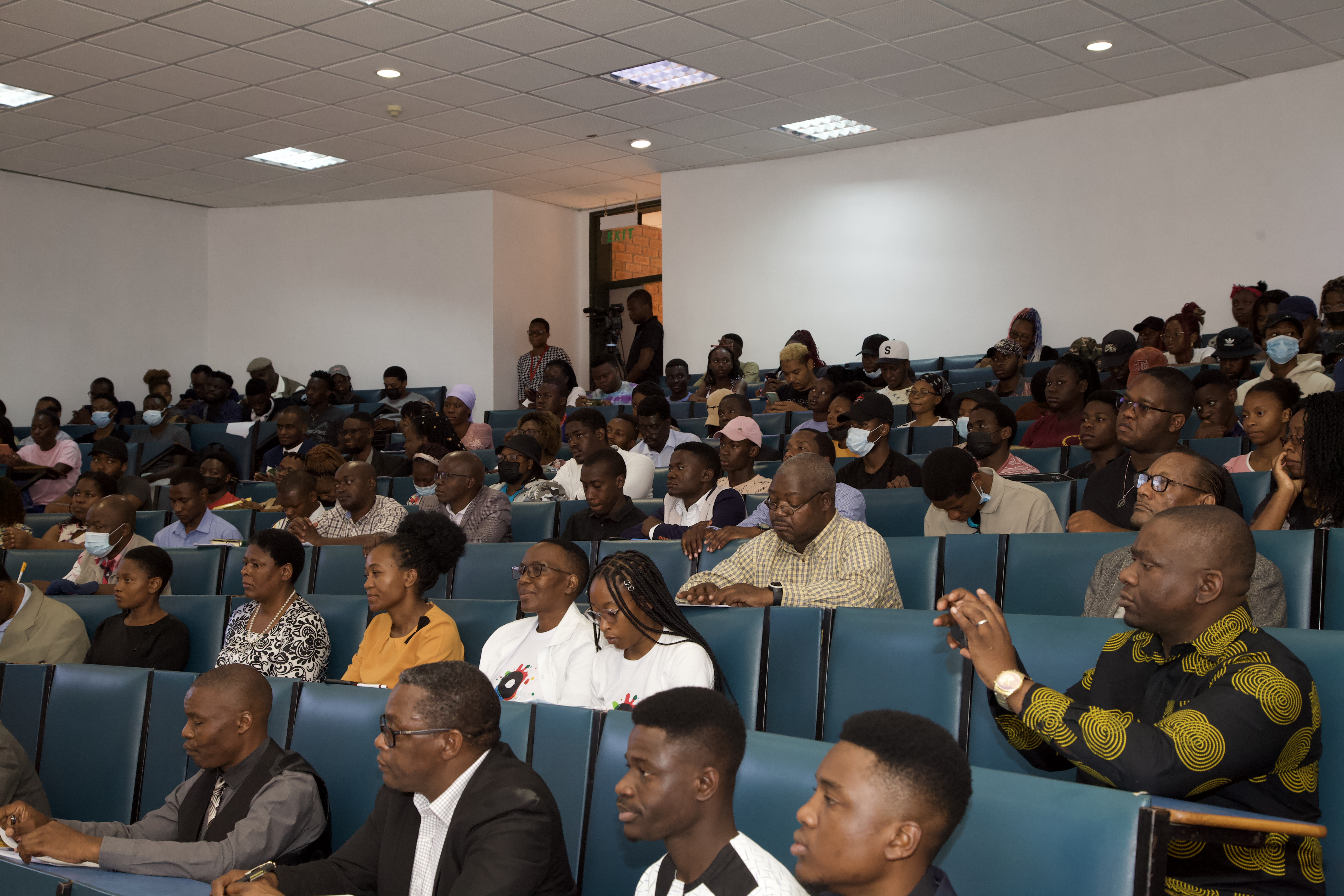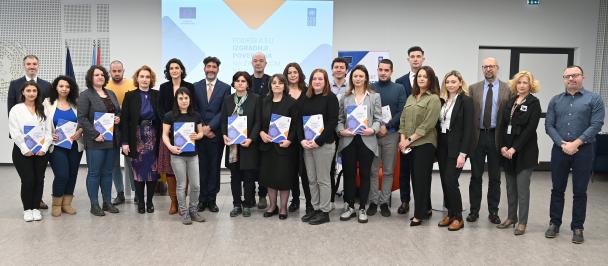A call to promote social solidarity and reduce prejudice in Zimbabwe
October 6, 2022

In commemoration of International Peace Day, the United Nations Development Programme (UNDP) in collaboration with the Institute of Peace, Leadership and Governance at Africa University recently hosted their first public lecture session at Africa University on promoting social solidarity and reducing prejudice in Zimbabwe and beyond its borders.
Guest lecturer Professor Tim Murithi, Head of Peace Building Intervention at the Institute of Justice and Reconciliation (Cape Town-South Africa) in his lecture, made emphasis on different interventions to promote social cohesion through peacebuilding using South Africa as a case study. Acknowledging the work that is currently ongoing to ensure peace and social justice are attained, he mentioned “It is of importance that we adopt the mindset for peace, to plant the seed for our inner peace if we are to build societal peace going forward”
The National Peace and Reconciliation Commission of Zimbabwe and other independent commissions are initiatives to address the repercussions of the past and build future pathways for reconciliation. In addition, 55 African countries have adopted the African Union Transitional Justice Policy (AUTJP) and Zimbabwe is not an exception.
Co-lecturer Professor Pamela Machakanja, the Interim Deputy Vice-Chancellor at Africa University, emphasized the three pillars through which social cohesion for peace could be achieved which include:
Social Inclusion- Promoting the terms of participation within communities at various social levels.
Social Capital- Network of relationships among people who live and work in a particular society, enabling the society to function effectively
Social Mobility- opportunities for movement between different social groups
She continued to urge the student to read the constitutions, and values that guide peace, developmental and human rights issues, and analyse the extent these have been achieved.
During the lecture, students raised several key issues and questions which include: The need to infuse topics of peace into the curriculum from ECD and Ph.D. levels; Lack of efforts to educate grassroots communities on gender-based violence and sexual reproductive health; What steps are African leaders taking to push Africa forward ?; How do we attain peace as a country if ourselves do not have the self inner peace, peace in homes and communities ?.
UNDP brought together partners and the United Nations Country Team (UNCT) in the Governance space as well as provided financial support to the public lecture through the Peace Building initiative being funded by the Government of Switzerland through the Swiss Development Corporation and the Government of Ireland.
Mr. Zebulon Takwa, Peace and Development Advisor at UN Zimbabwe highlighted how peace day is of paramount importance to UN Zimbabwe and its agencies saying “We all have a role to play in fostering peace, we are called upon to work to dismantle the structures that entrench racism in our midst by supporting movements for equality and human rights and to the youths of this university and beyond, I call on you to imbibe the values of peace, tolerance, and dialogue.”
The event was attended by one hundred and fifty (150) students from different Universities around Zimbabwe, Civil Society Organizations (CSOs), and the Government of Zimbabwe, and among them were the Catholic Commission on Justice and Peace in Zimbabwe (CCJPZ), Zimbabwe Lawyers for Human Rights (ZLHR), Diaspora and Returnees Cooperation for National Developments, United Nations (UN Zimbabwe), United Nations Educational, Scientific and Cultural Organization (UNESCO), and the United Nations Entity for Gender Equality and the Empowerment of Women (UN Women).

 Locations
Locations


